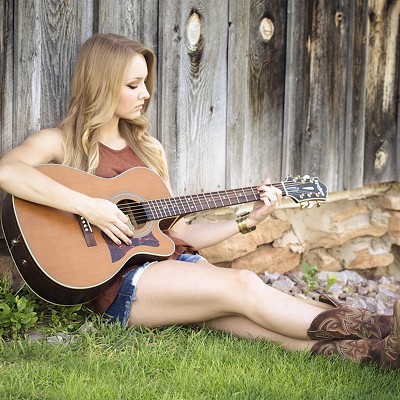Charlotte's new power base
A classic, yet timely, edition of Citizen Servatius
Tara's taking a break this week (she'll be back next issue), so we're running a column we ran nearly one year ago -- which touches on race, voting and Judge Bill Belk.
As of deadline, it was still the biggest untold story in Charlotte. It is a story of shifting political power here of such magnitude that it jumps out at you when you look at the numbers.
Dwayne Collins, head of the Black Political Caucus of Charlotte-Mecklenburg, has noticed the change. So did Barack Obama's campaign, which capitalized on it to win North Carolina.
Politics is first and foremost a numbers game. Whoever has the most voters and can get them to the polls wins. In Charlotte, that entity is now the Black Political Caucus.
Consider this. Between November 2000 and November 2008, an additional 77,421 African-American voters registered to vote in Mecklenburg County. During the same period, only 54,970 additional white voters registered.
Those numbers are in part a side effect of Obama's voter registration efforts, which added an impressive 34,000 additional black voters to Mecklenburg rolls since January.
But the trend is also part of a broader pattern. Between January 2000 and January 2008, before the Obama voter registration effort began, African-American voter registration here grew by 42,959. White voter registration grew by 28,045 over the same period.
The trend suggests what school demographics have indicated for a few years -- more African-Americans than whites are now moving to Charlotte-Mecklenburg. Until the results of the 2010 Census are in, we won't know for sure if this is the case. But because the Motor Voter Act has resulted in registration of large swaths of the population, big voter registration shifts are a good indicator of demographic patterns.
William Frey, a demographer with the Brookings Institution, first noticed the demographic trend in 2004. African-Americans were moving back to the South in huge numbers, Frey found, and Charlotte had become the No. 3 destination in the nation for African-Americans, behind Atlanta and Dallas.
That trend is now showing up at the polls. White voters still outnumber African-American voters here, but the rapid growth in African-American registration is a steady trend that could change the face of Charlotte politics. Just more than a decade ago, 22 percent of registered voters in Charlotte were black. Now 34 percent are.
If the pattern continues, nearly half of all voters in Charlotte will be African-American in a little over a decade. What does that mean?
Charlotte politics has long been dominated by moderate upper-class whites who divide their votes between Democrats and moderate Republicans. Up until about seven years ago, African-Americans who ran at-large as part of three- and four-person slates with white Democratic colleagues often lost off-year elections as white voters put the white candidates in but rejected the black ones.
That trend should begin to reverse as African-Americans use their numbers to win at-large races and dominate the Democratic Party. Some 70 percent of registered Democrats in Charlotte are now black, which means that white Democrats will find themselves increasingly edged out in city and countywide primaries when African-American candidates run against them. White Democrat candidates a decade from now will increasingly find themselves pushed to the margins black candidates once occupied.
Since white voters here split their votes between the Democrat and Republican candidates and black voters vote nearly monolithically for Democrats, the candidates Collins and the Black Political Caucus endorse will increasingly have the edge as the combined black and white Democrat vote total elects candidates.
As I wrote some time ago, it's now a walk in the park to get from 34 percent to the 50.1 percent you need to win citywide if you are an African-American Democrat candidate in Charlotte. You merely need to capture the black vote (an easy assignment), half the white Democratic vote and a third of the unaffiliated vote. Since black candidates here easily win more than half the white Democratic vote, they're certain to be a powerful force going forward in general elections as well.
You can begin to see this muscle being flexed in interesting ways, like the election of Bill Belk as a district court judge. Belk, a quirky millionaire member of the department store founding family, ran against the judge in his divorce case. Belk was angry he lost over half his assets to his ex-wife and had little legal or judicial experience since he had barely used his law degree.
The Charlotte Observer devoted an unusually large amount of ink to railing against Belk's election. The local Democratic Party didn't endorse him on their slate of judicial candidates. But Belk got the Black Political Caucus endorsement -- copies of which were handed out at the polls -- which was enough to elect him.
That will make the members of the Black Political Caucus endorsement board very powerful people going forward. What they do with that power will be interesting to watch.
Latest in Citizen Servatius
Calendar
-

Wine & Paint @ Blackfinn Ameripub- Ballantyne
-

Face to Face Foundation Gala @ The Revelry North End
-
An Evening With Phil Rosenthal Of "Somebody Feed Phil" @ Knight Theater
-
Kountry Wayne: The King Of Hearts Tour @ Ovens Auditorium
-

Queen Charlotte Fair @ Route 29 Pavilion
-
Canuck in the Queen City 7
A Canadian transplant looks back at her first year as a Charlotte resident
-
Homer's night on the town 41
If you drank a shot with the Knights mascot on Sept. 20, you were basically harboring a fugitive
-
Delic Holdings Inc. Announces Meet DELIC, the Premiere Psychedelic and Wellness Edutainment Event and Expo for Newcomers and Veteran Psychonauts, Announces Initial Speaker Lineup 42








